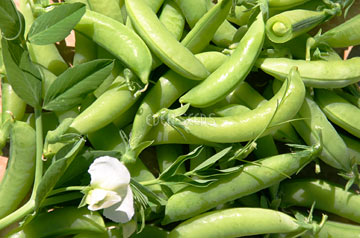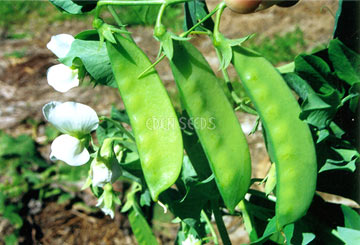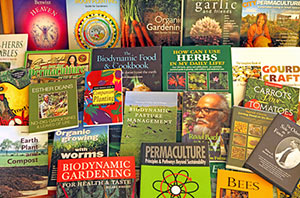Newsletter - Autumn 2019
Welcome
Autumn is a most productive time in the garden. Getting a winter garden started in the warmer months gives plants a good start.
We continue to enjoy implementing our aim to serve home gardeners and growers who supply produce to others using only the old traditional heritage open pollinated varieties.
It’s not always possible to keep each variety in the catalogue each year. Many growers world-wide share our vision so we are able to offer the widest range without resorting to patented hybrids which are a cross between two man manipulated inbred varieties. With the heritage varieties growers can select their own seed for future plantings. - Alf Finch.
Garlic - certified organic
Seeds to plant through Autumn/Winter
 Bean, Broad
Bean, Broad
 Beetroot
Beetroot
 Broccoli
Broccoli
 Brussels-Sprouts
Brussels-Sprouts
 Cabbage
Cabbage
 Carrot
Carrot
 Cauliflower
Cauliflower
 Celeriac
Celeriac
 Celery
Celery
 Collards
Collards
 Kale
Kale
 Kohl Rabi
Kohl Rabi
 Leek
Leek
 Lettuce
Lettuce
 Mustard Greens
Mustard Greens
 Onion
Onion
 Parsnip
Parsnip
 Pea
Pea
 Radish
Radish
 Salad Greens
Corn Salad
Edible Chrysanthemum
Endive
Mesclun Mix
Mizuna
Mountain Spinach
Purslane
Rocket
Tatsoi
Salad Greens
Corn Salad
Edible Chrysanthemum
Endive
Mesclun Mix
Mizuna
Mountain Spinach
Purslane
Rocket
Tatsoi
 Salsify
Salsify
 Shallots
Shallots
 Silverbeet
Silverbeet
 Spinach
Spinach
 Swede
Swede
 Turnip
Turnip
 Asian Vegetables
Asian Vegetables
 Herbs
Herbs
For growers in the tropics and frost free sub-tropics, you can benefit from planting:
 Bean, Broad
Bean, Broad
 Bean, Bush
Bean, Bush
 Bean, Climbing
Bean, Climbing
 Beetroot
Beetroot
 Broccoli
Broccoli
 Brussels-Sprouts
Brussels-Sprouts
 Cabbage
Cabbage
 Capsicum
Capsicum
 Carrot
Carrot
 Cauliflower
Cauliflower
 Celeriac
Celeriac
 Celery
Celery
 Collards
Collards
 Corn
Corn
 Cucumber
Cucumber
 Eggplant
Eggplant
 Gourd
Gourd
 Kale
Kale
 Kohl Rabi
Kohl Rabi
 Leek
Leek
 Lettuce
Lettuce
 Mustard Greens
Mustard Greens
 Pumpkin
Pumpkin
 Radish
Radish
 Rockmelon
Rockmelon
 Salad Greens
Corn Salad
Edible Chrysanthemum
Endive
Kang Kong
Mesclun Mix
Mizuna
Purslane
Rocket
Tatsoi
Salad Greens
Corn Salad
Edible Chrysanthemum
Endive
Kang Kong
Mesclun Mix
Mizuna
Purslane
Rocket
Tatsoi
 Shallots
Shallots
 Silverbeet
Silverbeet
 Spinach
Spinach
 Squash, Button
Squash, Button
 Sunflower
Sunflower
 Tomato
Tomato
 Watermelon
Watermelon
 Zucchini
Zucchini
 Asian Vegetables
Asian Vegetables
 Herbs
Herbs
Gardening Articles
Pea
By Penny Ossowski
The pea is thought to have originally been domesticated in the Middle East, spread to the Mediterranean areas, then through Europe as the Roman Empire grew and eventually from Europe to the rest of the world. The pea was valued as it could be dried, making it easy to carry when travelling from place to place, ready to eat or to plant. Peas could be added to many dishes throughout the year. In the 17th and 18th centuries it became popular to eat peas while still green and immature soon after they were harvested. How many families have a traditional ‘Pea Soup’ Recipe?
Peas are a legume, part of the Fabaceae or Leguminosae family of vegetables, which extract nitrogen from the air and store it in little nodules along their roots. For this reason, when the plants finish cropping, dig them directly into the soil, where they will slowly decompose and release nitrogen for other plants to use or you could grow masses of peas - not just as vegies, but as a fertiliser and soil conditioner, a green manure crop and dig it in just before they flower.
There are 3 main varieties of peas the Pisum sativum, our everyday green pea, Pisum sativum var. macrocarpon, the snow pea and Pisum sativum var. macrocarpon ser. cv. the sugar snap pea. All varieties taste better when harvested young and eaten while fresh, often being consumed before they reach the table. The Snow and Sugar Snap peas are most economical as we don’t waste the pods of these varieties and they save a lot of preparation time as we don’t have to shell them.
Peas are a good cool weather plant, so put some in now. Grow peas in the garden or in pots. Peas will grow in most types of soils but prefer a slightly alkaline soil with a pH 6.0 – 7.5 and well drained, they don’t like wet feet. About a month before planting dig in some garden lime or dolomite, blood and bone and rock minerals. Peas can be grouped as bush or climbing varieties. The bush varieties still need some support (twigs are suitable) but only to about 30 – 50 cm while the climbing varieties are best with some form of trellis, teepee or archway up to 2 metres high. These should be erected before planting seeds. Seeds can be planted into seed trays but are best planted directly into the garden where they will grow, about 3 cm deep. Use bush peas in pots or hanging baskets and for climbing peas use a larger pot with poles or wire for them to climb up. Plant seeds into damp soil then don’t water again until the seedlings have emerged from the soil. They respond well to a little seaweed or comfrey tea after they start flowering.
Peas are happy to be planted with broccoli, cabbage, cauliflower, potatoes, beans, carrots, corn, and lettuce but don’t like chives, garlic, onions or shallots as companions.
The home gardener can harvest pods just as they're needed. It is best to harvest every 2 to 3 days so peas are being picked at their best. This regular picking also encourages the production of more flowers and in turn pods.
Peas should be picked immediately before cooking because their quality can deteriorate quickly the same as sweet corn. Snow peas are best picked when the pods have reached their full length but are still quite flat. The smaller the pods, the sweeter and more tender. Early in their growth pick the peas shoots to eat, delicious. This will also help your plants to bush more.
Allow some of your best pea pods to grow to maturity, dry on the plant and save the seeds for next year.
As peas are susceptible to powdery mildew it is best to water them early in the day and to water the soil near their roots not their leaves. Position your plants in a sunny, airy location, growing on a trellis helps with good air circulation. Milk, bi-carb and sulphur sprays will help with powdery mildew.
To store peas you can dry or freeze them. Peas freeze well and, providing they are processed immediately after picking, lose no more of their nutritional value than in just cooking them.
Some hints from our April meeting
Plant peas now as a winter crop
Peas like slightly alkaline soil
Seaweed spray can help with powdery mildew
For powdery mildew try 1 part whole milk to 10 parts of water in the morning before the sun rises and repeat every 3 days
Ros loves sugar snap peas but her favourite is Pigeon Pea, eat the green pods straight off the bush, succulent and tender if she gets them before the king parrots do.
Nutritional Information
Serving Size: (100 grams raw – in pods)
Calories: 42 Kilojoules: 176.4
Total Fat: 0g Cholesterol: 0mg
Total Carbohydrates 8g Dietary Fibre 3g
Sugars 4g Sodium 4mg
Protein 3g Vitamin A 1087 IU
Folate 42 mcg Vitamin C 60 mg
Vitamin E 0.39mg Vitamin K 25 mcg
Thiamin .15 mg Niacin .6mg
Vitamin B6 .16mg Riboflavin .08mg
Calcium 43mg Magnesium 24mg
Phosphorous 53mg Potassium 200mg
Iron 2.08mg Zinc .27mg
Nutritional Information
Serving Size: (100 grams raw – just peas)
Calories: 81 Kilojoules: 340.2
Total Fat: 0g Cholesterol: 0mg
Total Carbohydrates 14g Dietary Fibre 5g
Sugars 6g Sodium 5mg
Protein 5g Vitamin A 765 IU
Folate 65 mcg Vitamin C 40 mg
Vitamin E 0.13mg Vitamin K 24.8 mcg
Thiamin .266 mg Niacin 2.09mg
Vitamin B6 0.169mg Riboflavin 0.132mg
Calcium 25mg Magnesium 33mg
Phosphorous 108mg Potassium 244mg
Iron 1.47mg Zinc 1.24mg

Some popular varieties currently in stock at Eden Seeds are -
Sugarsnap Sugar Bush - plant to 60 cm high. It has succulent edible pale-green pods, 7.6 cm long. It is the sweetest of the sugarsnaps and very productive

Greenfeast - Popular Australian variety, sweet tasting, widely used podding/shelling pea. Heavy cropping bush 75-100cm, pods 5.5-6.5cm. Wilt resistant -. good for home gardeners
Snowpea Yakumo - a climbing, purple flowered snow pea with large flat, light green pods, 13 cm long, that do not cup.
Snowpea Oregon Giant - Large dark green pods, plant to 1m tall, powdery mildew resistant and some root rot resistance.
Snowpea Oregon Sugar - Flat edible pods to 10cm, in salads or cooked, bush type to 70cm, grown with or without stakes, heavy bearing, disease resistant.
Sugarsnap Climbing- Useful vegetable with no waste as the pods are sweet and crunchy.
You can buy Pea seed online from Eden Seeds and Select Organic.
You will find a wide range of Australian pea seed varieties for home gardeners and commercial growers.

Book Special - 30% discount on all titles
Our stock reduction sale continues, we are offering a massive 30% off all our books, DVDs, and wall charts. Prices will remain listed at full price but we will manually deduct 30% discount off any books on your order when we process your order.
Browse our range of books here
"GMOs Revealed" is a new docu-series we thought might be of interest to many of our growers.
www.gmosrevealed.com










